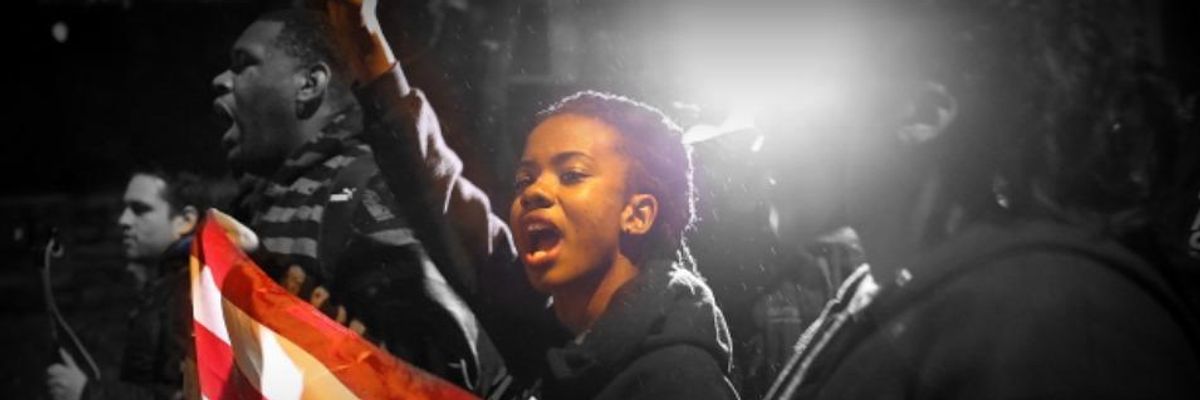

SUBSCRIBE TO OUR FREE NEWSLETTER
Daily news & progressive opinion—funded by the people, not the corporations—delivered straight to your inbox.
5
#000000
#FFFFFF
To donate by check, phone, or other method, see our More Ways to Give page.


Daily news & progressive opinion—funded by the people, not the corporations—delivered straight to your inbox.

Demonstrators march through the streets on Sunday in St. Louis, Missouri, protesting the shooting death of 18-year-old Michael Brown. (Photo: Justin Sullivan / Getty Images
The misnomer that is our "justice system" paradoxically touts its transparency in the opacity of nightfall. Yet as the smoke dissipates and the dust settles, the first cracks of daylight form on the horizon, announcing a new day at hand. A thing once seen cannot be unseen; a collective vision is not easily denied. The cover of darkness, once lifted, reveals a faint but steady light that points the way forward.
Trump and Musk are on an unconstitutional rampage, aiming for virtually every corner of the federal government. These two right-wing billionaires are targeting nurses, scientists, teachers, daycare providers, judges, veterans, air traffic controllers, and nuclear safety inspectors. No one is safe. The food stamps program, Social Security, Medicare, and Medicaid are next. It’s an unprecedented disaster and a five-alarm fire, but there will be a reckoning. The people did not vote for this. The American people do not want this dystopian hellscape that hides behind claims of “efficiency.” Still, in reality, it is all a giveaway to corporate interests and the libertarian dreams of far-right oligarchs like Musk. Common Dreams is playing a vital role by reporting day and night on this orgy of corruption and greed, as well as what everyday people can do to organize and fight back. As a people-powered nonprofit news outlet, we cover issues the corporate media never will, but we can only continue with our readers’ support. |
The misnomer that is our "justice system" paradoxically touts its transparency in the opacity of nightfall. Yet as the smoke dissipates and the dust settles, the first cracks of daylight form on the horizon, announcing a new day at hand. A thing once seen cannot be unseen; a collective vision is not easily denied. The cover of darkness, once lifted, reveals a faint but steady light that points the way forward.
The misnomer that is our "justice system" paradoxically touts its transparency in the opacity of nightfall. Yet as the smoke dissipates and the dust settles, the first cracks of daylight form on the horizon, announcing a new day at hand. A thing once seen cannot be unseen; a collective vision is not easily denied. The cover of darkness, once lifted, reveals a faint but steady light that points the way forward.